
2023 Global Esports Summit in China: Leading Speakers Kenneth Fok, Xu Haifeng, H.R.H Prince Faisal and Global Leaders Link to Future
SHENZHEN, China--(BUSINESS WIRE)--Jun 21, 2023--
2023-06-21 16:56
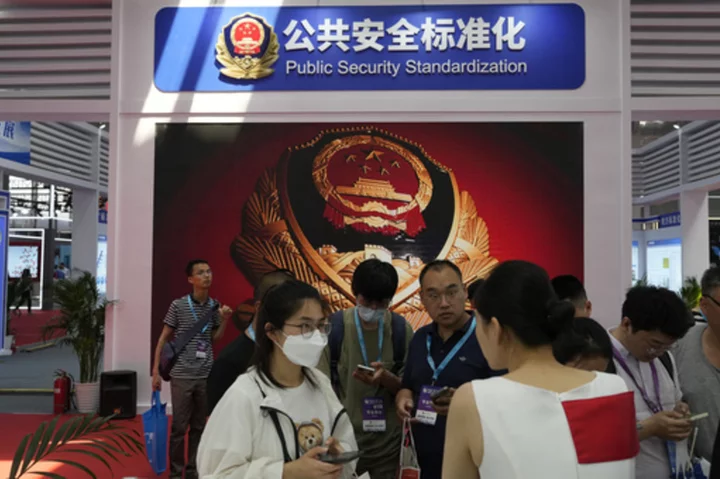
Cooperation or competition? China's security industry sees the US, not AI, as the bigger threat
China’s security and surveillance industry is now focused on shoring up its vulnerabilities to the United States and other outside actors, worried about risks posed by hackers, advances in artificial intelligence and pressure from rival governments
2023-06-21 16:25

Premium EV Manufacturer XPENG Chooses ACCESS To Provide In-Vehicle Infotainment
OBERHAUSEN, Germany & GUANGZHOU, China--(BUSINESS WIRE)--Jun 21, 2023--
2023-06-21 16:16

Boston Consulting Group Enters 40,000-ton Carbon Removal Credit Agreement with CarbonCapture Inc.
BOSTON & LOS ANGELES--(BUSINESS WIRE)--Jun 21, 2023--
2023-06-21 15:18
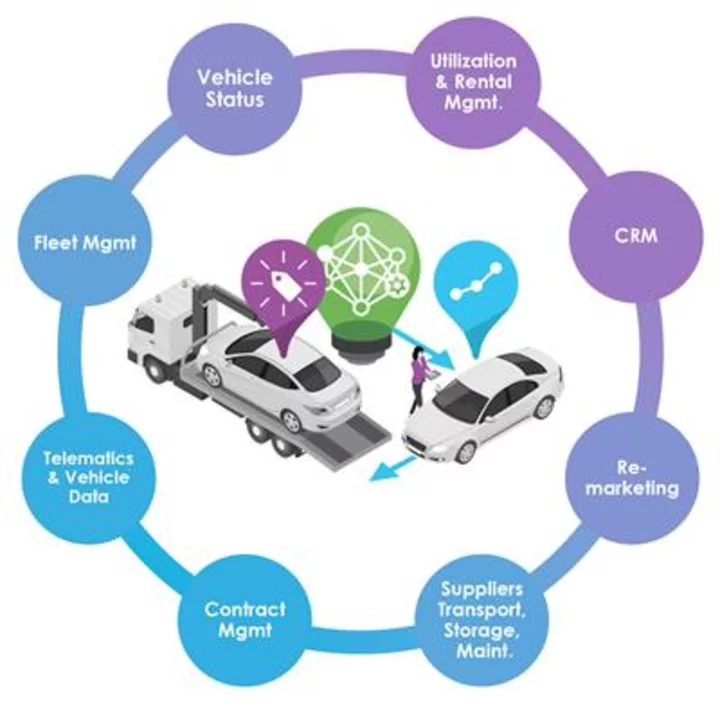
Ridecell Introduces Fleet Transformation Cloud™ to Accelerate Digital Transformation of Fleet-based Businesses
SAN FRANCISCO--(BUSINESS WIRE)--Jun 21, 2023--
2023-06-21 15:15
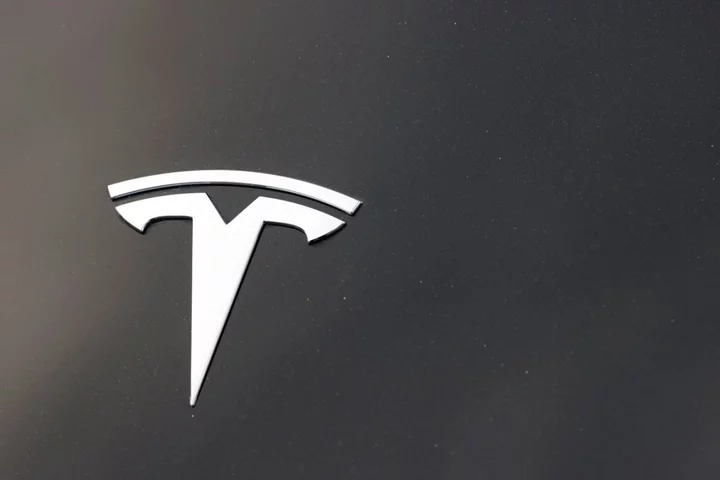
Hacker reveals secret ‘Elon Mode’ in Tesla cars for full self-driving
Tesla vehicles appear to have a secret hands-free driving feature named “Elon Mode”, an anonymous hacker has revealed. The hacker, who goes by the handle @greentheonly on Twitter, is known for assessing the electric vehicle manufacturer’s software code and uncovering features before their official rollout. In the latest reveal, the hacker unveiled the hidden “Elon Mode” feature which doesn’t require any attention from the driver while using Tesla’s Full Self-Driving (FSD) software. Tesla’s FSD is the EV maker’s advanced driver-assist system that is in beta testing, but is available for those who pay as much as $15,000 or $199 per month for the option. FSD Beta is a work in progress for the EV company and gives drivers an “autosteer on city streets”. Tesla recently recalled a number of vehicles for a free over-the-air software update of its experimental FSD Beta package amid fears of crashes. In February, a recall notice posted by the US National Highway Traffic Safety Administration noted that the FSD Beta system may cause the vehicles to crash. The notice said this could happen by allowing the vehicles to “act unsafe around intersections, such as traveling straight through an intersection while in a turn-only lane, entering a stop sign-controlled intersection without coming to a complete stop, or proceeding into an intersection during a steady yellow traffic signal without due caution”. More recently, a leaked internal report indicated last month that the FSD had thousands of user complaints of sudden braking and abrupt acceleration. On Saturday, the hacker posted a video on Twitter testing out the secret self-driving feature after finding and enabling it. Tesla’s Autopilot system is known to require drivers to nudge the steering wheel to confirm they are paying attention to the road. It also constantly assesses the feed of the vehicle’s interior camera above the rearview mirror to observe drivers and make sure they’re looking at the road, leading to some users calling the system’s checks “nagging”. But @greentheonly found from their “nearly 600 miles” test of Elon Mode on a company-owned vehicle that they “did not need to watch for the dreaded nag”. The hacker noted that the AI system drove slow on the highway and also seemed to randomly change lanes. “This also explains the barrage of people that claim the car works very good and they are happy – perhaps they like to drive slow, content with random lane changes and such,” the hacker tweeted. It remains unclear if “Elon Mode” will come to regular users of the EV, with Mr Musk hinting last December that nag-free driving was coming. Tesla did not immediately respond to The Independent’s request for comment. Read More From Elon Musk to Neil deGrasse Tyson: The business and thought leaders set to meet Modi on US visit Elon Musk and Joe Rogan challenge Covid vaccine scientist to ‘debate’ anti-vaxxer Robert F Kennedy Jr Elon Musk’s sister claims she’s been overcharged because she shares last name with Tesla billionaire Over 100,000 ChatGPT accounts compromised over last year, report says Facebook Marketplace is most complained-about online retail platforms Scientists create tiny robot that works like an animal and swims around your body
2023-06-21 14:57

Elon Musk says Tesla is coming to India 'as soon as humanly possible'
Tesla CEO Elon Musk said Tuesday the company is looking to invest in India "as soon as humanly possible," following a meeting with Indian Prime Minister Narendra Modi in New York.
2023-06-21 14:25
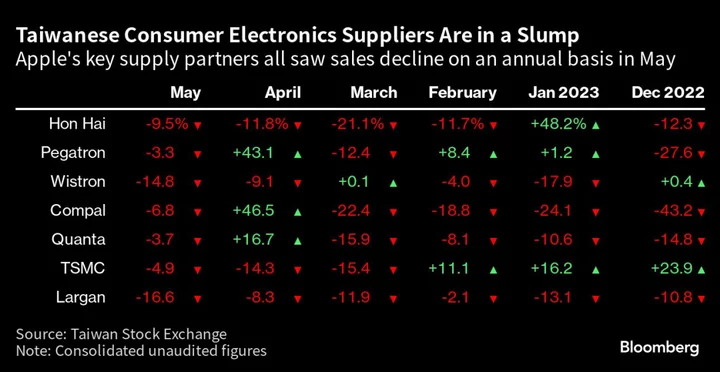
Apple’s Taiwan Suppliers See Sales Falter Again on Slow Demand
Revenue among Taiwan’s major Apple Inc. suppliers fell for a fourth straight month in May, as high living
2023-06-21 14:24

Sky Eye Systems Achieves Italy’s Highest Safety Certification for Lightweight Drones Using Dassault Systèmes’ 3DEXPERIENCE Platform
VELIZY-VILLACOUBLAY, France--(BUSINESS WIRE)--Jun 21, 2023--
2023-06-21 13:26

Prime Day Is Back This July 11 & 12, With Big Savings, New Amazon-Exclusive Deals, and Celebrity Product Launches
SEATTLE--(BUSINESS WIRE)--Jun 21, 2023--
2023-06-21 13:17
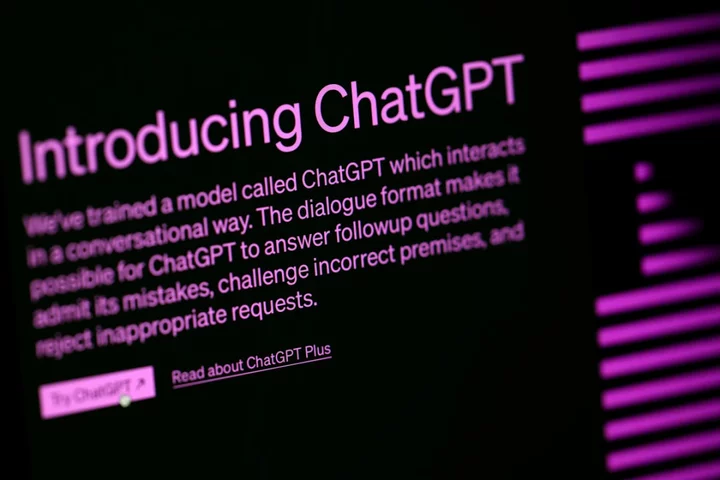
Over 100,000 ChatGPT user accounts compromised over last year, report says
More than 100,000 user accounts of the popular artificial intelligence chatbot platform ChatGPT have been compromised over the last year using information-stealing malware, a new report has revealed. The report, published by Singapore-based cybersecurity firm Group-IB, identified 101,134 compromised accounts, the credentials of many of which have been traded over the last year on illicit dark web marketplaces. At its peak in May, nearly 27,000 credentials of compromised ChatGPT accounts were traded on the dark web, the group noted, adding that the Asia-Pacific region experienced the highest concentration of ChatGPT credentials offered for sale. This region, according to the report, accounted for almost 40 per cent of compromised accounts between June 2022 and May 2023, followed by Europe. Since its widespread rollout in November last year, ChatGPT has seen growing use, with employees taking advantage of the chatbot to optimise their work across fields from software development to business communications. As the chatbot stores the history of user queries and the AI’s responses, experts have warned that unauthorised access to ChatGPT accounts could expose confidential or sensitive information. “Employees enter classified correspondences or use the bot to optimize proprietary code. Given that ChatGPT’s standard configuration retains all conversations, this could inadvertently offer a trove of sensitive intelligence to threat actors if they obtain account credentials,” said Dmitry Shestakov, the head of threat intelligence at Group-IB. Several businesses, institutions and universities across the world, including several in Japan, have either banned use of the chatbot, or have warned staff to not reveal sensitive information to the AI bot as such data can be exploited for targeted attacks against companies and their employees. The Singapore-based cybersecurity group warned in its latest report that ChatGPT accounts have already gained popularity within underground communities on the dark web that are accessible only via special software. Using malicious software known as info stealers, credentials saved in browsers, bank card details, crypto wallet information, cookies, browsing history and other information from browsers installed on infected computers are being stolen and sent to operators. Logs containing user information, including data on the IP addresses, are being actively traded on dark web marketplaces, according to Group-IB. A majority of logs containing ChatGPT accounts have been breached by the infamous Raccoon info stealer, the group noted. Experts urge users to update passwords regularly and implement two-factor authentication for accessing their ChatGPT accounts. Users are also advised to disable the chatbot’s chat saving feature from its settings menu or manually delete conversations immediately after use. Read More ChatGPT ‘grandma exploit’ gives users free keys for Windows 11 Protect personal data when introducing AI, privacy watchdog warns businesses How Europe is leading the world in the push to regulate AI Scientists warn of threat to internet from AI-trained AIs ChatGPT ‘grandma exploit’ helps people pirate software Hundreds attend ‘soulless’ AI-generated church service
2023-06-21 12:48
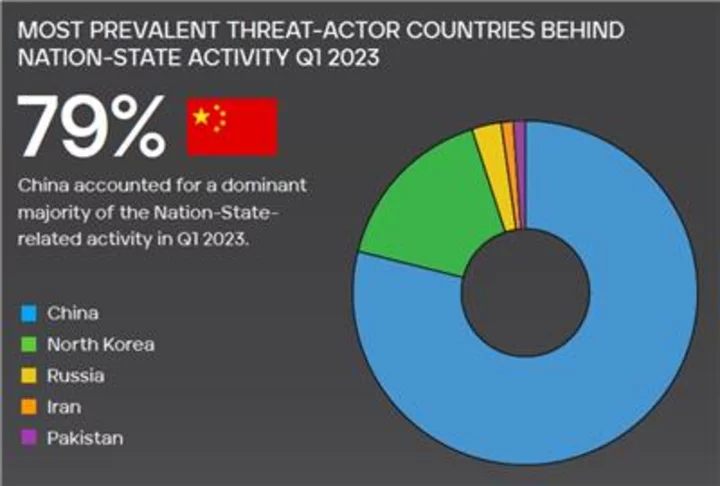
Trellix Detects China-Affiliated APT Groups Behind Most Nation-State Threat Activity
SAN JOSE, Calif.--(BUSINESS WIRE)--Jun 21, 2023--
2023-06-21 12:19
You Might Like...

Rocket Money Review

Macron to meet Elon Musk in Paris to talk Tesla investment

Broadband subsidy program that millions use will expire next year if Congress doesn’t act

Once a reliable cash cow, Amazon's cloud business slows as companies pull back on service

Google in last ditch effort to overturn $2.6 billion EU antitrust fine

Mars is spinning faster and faster and scientists are baffled
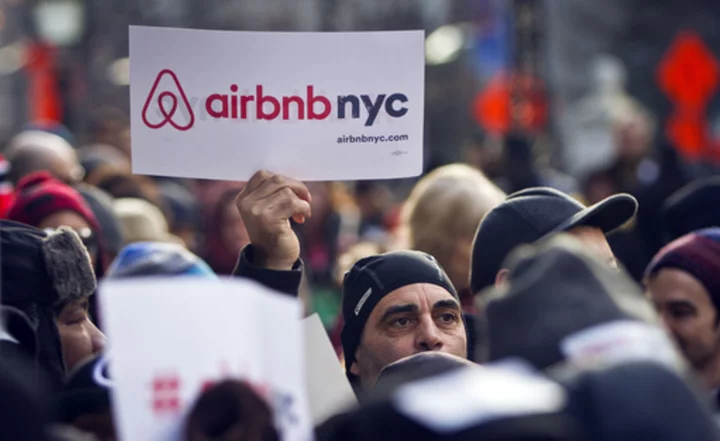
Airbnb sues New York City over restrictions on short-term rentals

University of Phoenix announces 2023 Faculty of the Year Award recipients
